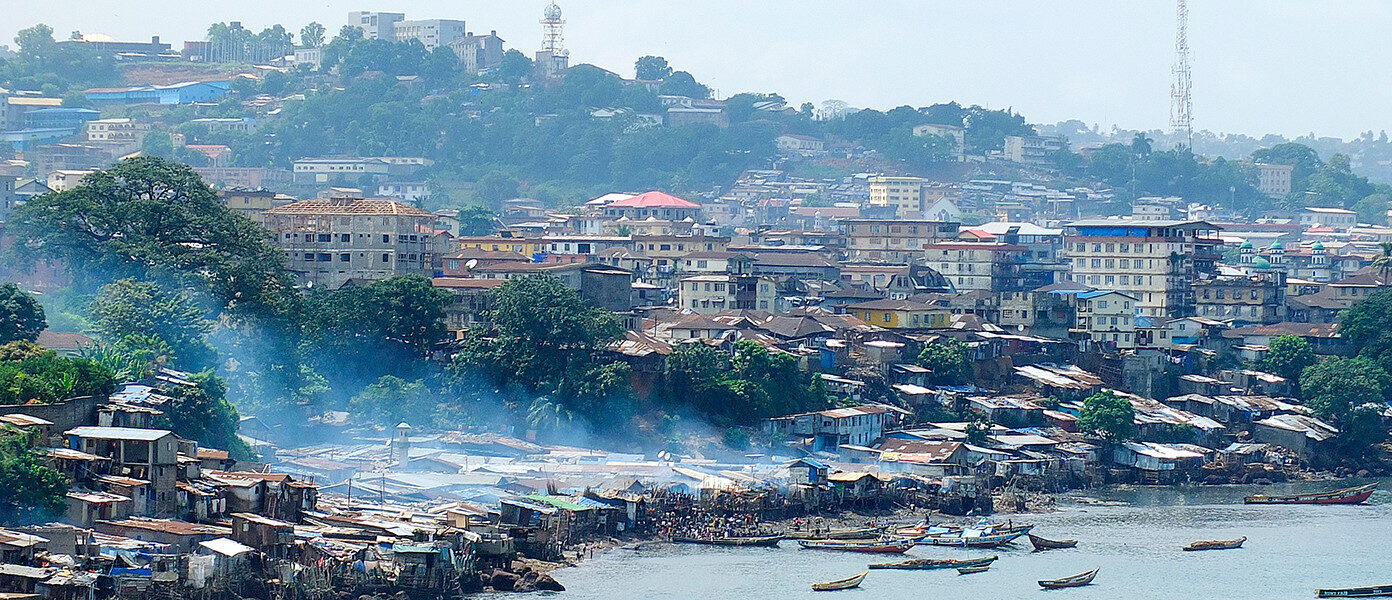Managing on Ebola’s front line


How Sierra Leone’s business community rallied to keep running through the Ebola outbreak
After eight years I am leaving Sierra Leone. I go as the Ebola crisis, which has ravaged the country and caused enormous damage to its economy and society, is coming to an end.
Neighbouring Liberia has just been declared Ebola-free by the World Health Organisation, and Sierra Leone is on a similar trajectory.
As businesses, we struggled daily with the disease, and with the fear that it created across society: this is an epidemic that scared everyone.
People were coming into my office visibly shaking
Bank branches are essentially public spaces, and because the disease is spread through human contact, the staff on our shop floor were afraid. Some of our more than 150 employees lost family to the disease.
The healthcare system in Sierra Leone virtually collapsed, and when we lost one staff member to an unrelated illness it exacerbated the fear because it created the sense that everyone was vulnerable.
People were coming into my office visibly shaking. As a manager, I had a duty to keep informed. I used what free time I had – social events had essentially come to an end – to go back to school. I learned everything I could about the disease and passed on the knowledge to my colleagues.
Communication was incredibly important; it helped us to manage the fear and reassure people that we had done everything possible to manage the known risks to ourselves and our clients.
The business community rallied quickly to try to limit the damage to Sierra Leone’s economy. We each had expertise that we could bring to bear, and we formed an emergency private sector association to advise the government.
We believed that the private sector had to keep on going, but it was hard. Many companies were closing down, those with debt were at risk of defaulting. The government was very receptive. Despite the challenges, the finance minister made time to meet with us, and to understand what could be done to keep the country open for business.
The outlook for Sierra Leone is a challenging one. Gross domestic product has been hit badly – from forecasts of over 10 per cent growth, we saw 4 per cent last year and it will likely contract by 2 per cent this year. The outlook for agriculture, for manufacturing and even services is poor, but the country can get out of this situation.
I leave hopeful that we are now past the worst, and that this great country with its huge potential will recover
Sierra Leone needs investment in healthcare delivery and education, and its private sector needs support. Non-performing loans have gone through the roof, and a way needs to be found for development partners and government to work with the local banking industry to ensure that credit is made available for the businesses that have been seriously impacted by the crisis. This could help jumpstart the economy.
The start of the crisis last year began an intensely challenging period for Sierra Leone, for the Bank and for me personally. I leave hopeful that we are now past the worst, and that this great country with its huge potential will recover.